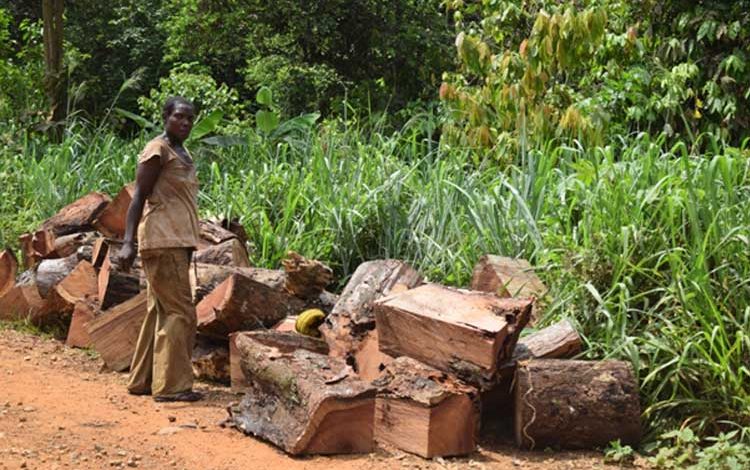The Chairman, Cross River State Forestry Commission, Mr Tony Ndiandeye, on Monday, March 21, 2022, said that unemployment was responsible for two per cent depletion of forest reserves annually in Cross River.

Ndiandeye disclosed this in an interview in Calabar while commemorating the World Forest Day (WFD) 2022.
WFD is observed annually on March 21, to increase awareness about the role forests play in sustaining lives on earth by providing food, water, and shelter to animals and human beings.
The theme for the WFD 2022 is: “Forests and sustainable production and consumption.”
The chairman said due to large-scale unemployment, graduates from the nation’s tertiary institutions, who are from the forest bearing communities, see the forest as an alternative to employment.
He said these indigenes engaged in illegal logging activities, which contributed in depleting the forest reserves.
“Although, a total ban of activities had been declared by the state government on the forests, that may not be a very sustainable solution.
“The forests had provided makeshift survival strategies for the young people, and this is why it is a bit more difficult to use the policy of total ban to control forest depletion.
“Many of these young graduates have found the forest to be an alternative and due to their illegal activities, we are losing two per cent of our forests annually.
“The benefits of forests to our environment cannot be quantified, part of which are to help reduce the impact of events threatening to life, such as floods and climate change,” Ndiandeye said.
He maintained that Cross River had an outstanding history of forest conservation, especially around 2008 when the UN Programme on Reducing Emissions from Deforestation and Forest Degradation (UN-REDD) was introduced.
According to him, the programme made Cross River the first state for the UN-REDD initiative, but it was not sustained even though a ban was placed on forest activities.
“Cross River still houses 50 per cent of the remaining rainforest in Nigeria, which accounts for our carbon credit, but the government is looking at less stringent but workable solutions to solve the problem.
“This may include the reintroduction of the sustainable management of the forest because truly, the livelihood of forest bearing communities was dependent on their forests,” he said.
According to the UN, forests are home to about 80 per cent of the world’s terrestrial biodiversity, with more than 60,000 tree species, though about 10 million hectares had been lost.
By Christian Njoku
